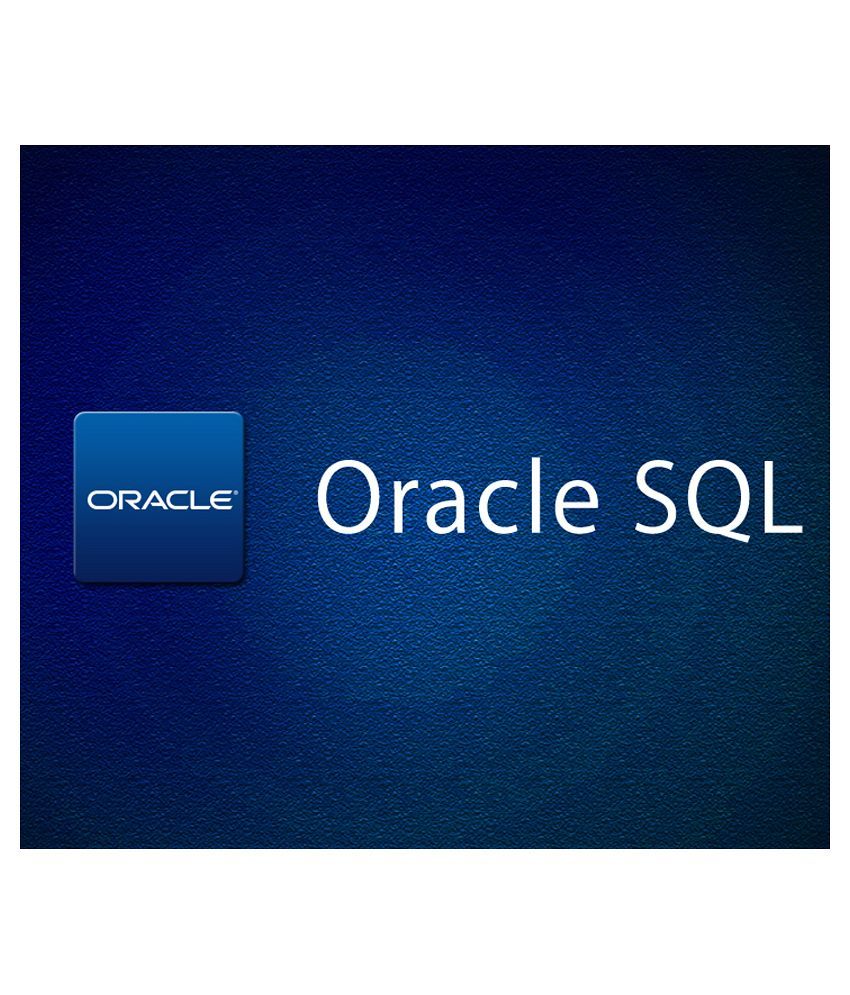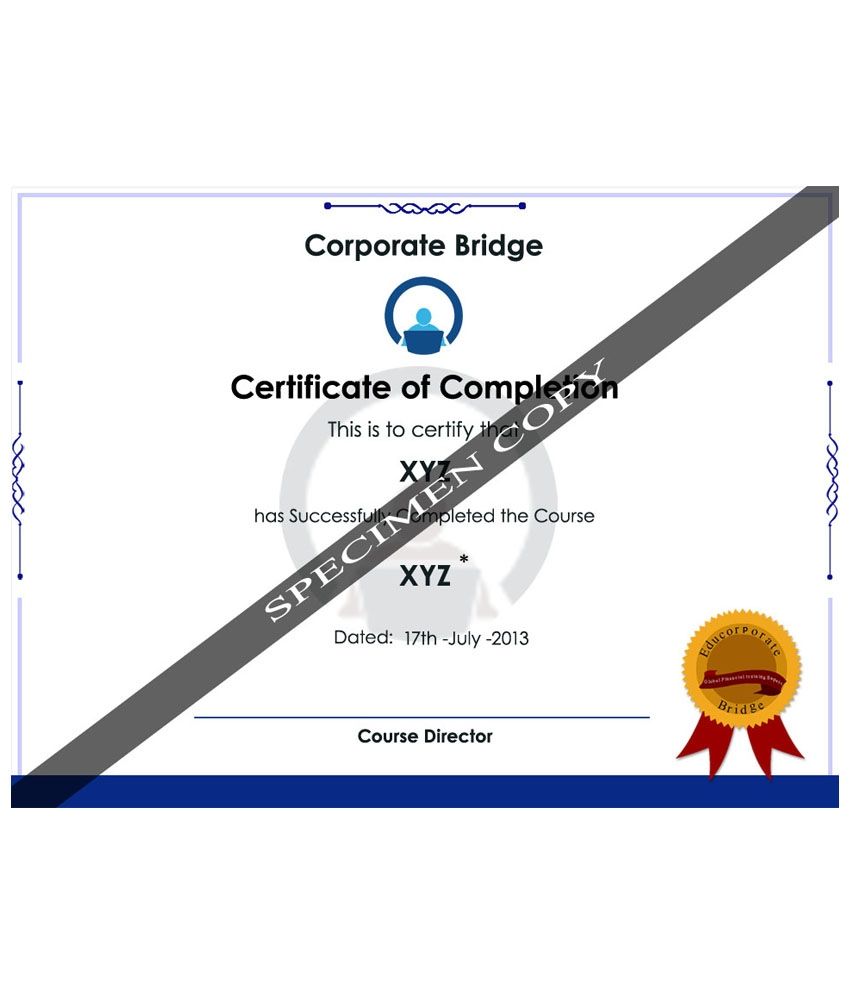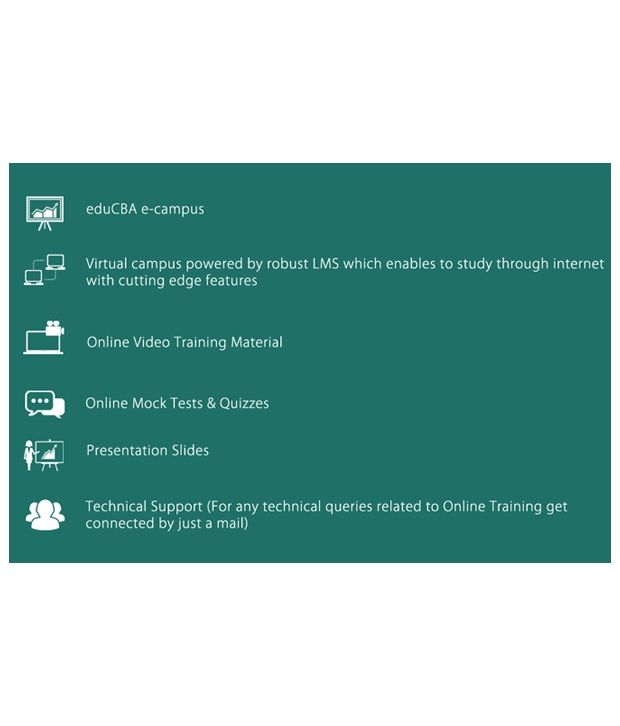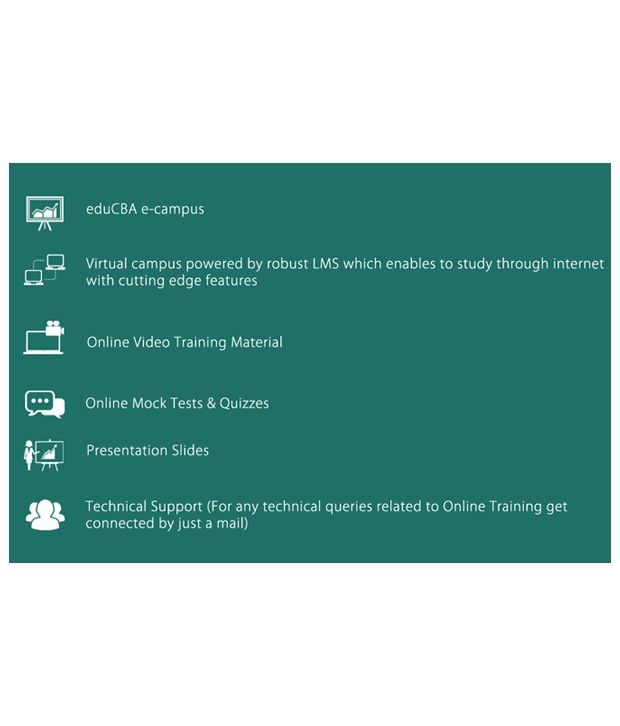![]()
Syste
m (Hardware/Software)
Requirements
| Operating
Software | Windows XP or
Higher
| | Processor | Minim
um P4 or Higher
| | RAM | 1 GB or
Higher
| | Browser | Any
| | Recommended Internet
Speed | Minimum 1MBPS
| | Supported Browser
Plug-ins | * Updated
Flash Player, * Update Java
| | Other
Requirements | Speaker or
headphone | |
Prdocut DescriptionIn this course, you will learn how to write SQL queries to access data stored in an Oracle Database schema. This SQL training course teaches you how to use SQL to manage data that is held in databases. This training course is designed for beginners who have no previous experience with SQL of any kind. Learn to manipulate data and use various types of functions for customizing data output. You will learn essential SQL skills that allow developers to write queries against single and multiple tables, manipulate data in tables, and create database objects. Learn to use single row functions to customize output, use conversion functions and conditional expressions.
It uses video lectures, covering database topics such as:
Basic terminologyReading data using a SELECT statementWhat can be done using a SELECT statementFunctionsData typesJoins, set operators, subqueriesInserting, updating and deleting dataCreating tables
You can go from absolute beginner to capable of writing SQL statements in a matter of hours. You will start by learning how to use SQL to select and filter data from a database, including sorting the data, filtering date columns, and working with null or empty values. The course then teaches you about common SQL functions, such as text manipulation, and how to group and summarize. This video tutorial also covers topics such as joining tables, data modification, and creating new tables and views. Finally, you will learn about the powerful subquery, and the main variances in SQL between database types. Once you have completed this computer based training course, you will have a fundamental knowledge of what SQL is and how you can apply it to different database types. Working files are included, allowing you to follow along with the author throughout the lessons. This SQL training course is designed for students new to writing SQL queries. A typical student will need to learn SQL to build applications or to generate business reports. This course will teach you the basics of the SQL language on an Oracle database.Course Curriculum
Section1 Introduction to SQL commands
Lecture1 Introduction to SQl commands
Lecture2 The Basic SELECT Statement
Lecture3 Basic SELECT Statement, DUAL Table
Section2 NULL in SQL
Lecture4 NULL in SQL
Lecture5 Number based Comparisons
Section3 Sorting rows in SQL
Lecture6 Sorting rows in SQL
Lecture7 The ORDER by Clause
Lecture8 ORDER by clause, Summary
Section4 Comparison Operators
Lecture9 Comparison Operators part 1
Lecture10 Comparison Operators part 2
Lecture11 Comparison Operators part 3
Lecture12 Comparison Operators part 4
Section5 Character functions
Lecture13 Character functions Part 1
Lecture14 Character functions Part 2
Lecture15 Character functions Part 3
Lecture16 Character functions Part 4
Lecture17 Character functions Part 5
Lecture18 Character functions Part 6
Lecture19 Character functions Part 7
Lecture20 Character functions Part 8
Lecture21 Character functions Part 9
Lecture22 Character functions Part 10
Lecture23 Character functions Part 11
Section6 Number Functions
Lecture24 Number Functions Part 1
Lecture25 Number Functions Part 2
Lecture26 Number Functions Part 3
Lecture27 Number Functions Part 4
Lecture28 Number Functions Part 5
Section7 Working with Dates
Lecture29 Working with Dates Part 1
Lecture30 Working with Dates Part 2
Lecture31 Working with Dates Part 3
Lecture32 Working with Dates Part 4
Lecture33 Working with Dates Part 5
Section8 Date Arithmetic
Lecture34 Date Arithmetic Part 1
Lecture35 Date Arithmetic Part 2
Section9 Explicit Conversion Functions
Lecture36 Explicit Conversion Functions Part 1
Lecture37 Explicit Conversion Functions Part 2
Lecture38 Explicit Conversion Functions Part 3
Lecture39 Explicit Conversion Functions Part 4
Section10 General Functions and Conditional Functions
Lecture40 General Functions
Lecture41 Conditional functions Part 1
Lecture42 Conditional functions Part 2
Lecture43 Conditional functions Part 3
Section11 Group functions
Lecture44 Group functions Part 1
Lecture45 Group functions Part 2
Lecture46 Group functions Part 3
Lecture47 Group functions Part 4
Lecture48 Group functions Part 5
Lecture49 Group functions Part 6
Section12 Creating and Restricting Groups of Data
Lecture50 Creating and Restricting Groups of Data Part 1
Lecture51 Creating and Restricting Groups of Data Part 2
Lecture52 Creating and Restricting Groups of Data Part 3
Lecture53 Creating and Restricting Groups of Data Part 4
Benefits
eduCBA e-campus
Virtual campus powered by robust LMS which enables to study through internet with cutting edge features
Online Video Training Material
Presentation Slides
USP of the product
* 24 x 7 online access* Learn from tutorials curated by expert industry professionals and trainers* Certificate of Completion* Practical application oriented skillsHow to use? (Steps to use Study Material)
Step 1 - eduCBA sends the redemption coupon along with the registration link. Step 2 - Student will register with his register email id and coupon Step 3 - Student receive the course access and password on his/her email idStep 4 - Login using your email id and password and start learningTo get more information, you may want to watch the video below
Learn Everything, Anywhere, Anytime
India's Largest Online Education Marketplace




